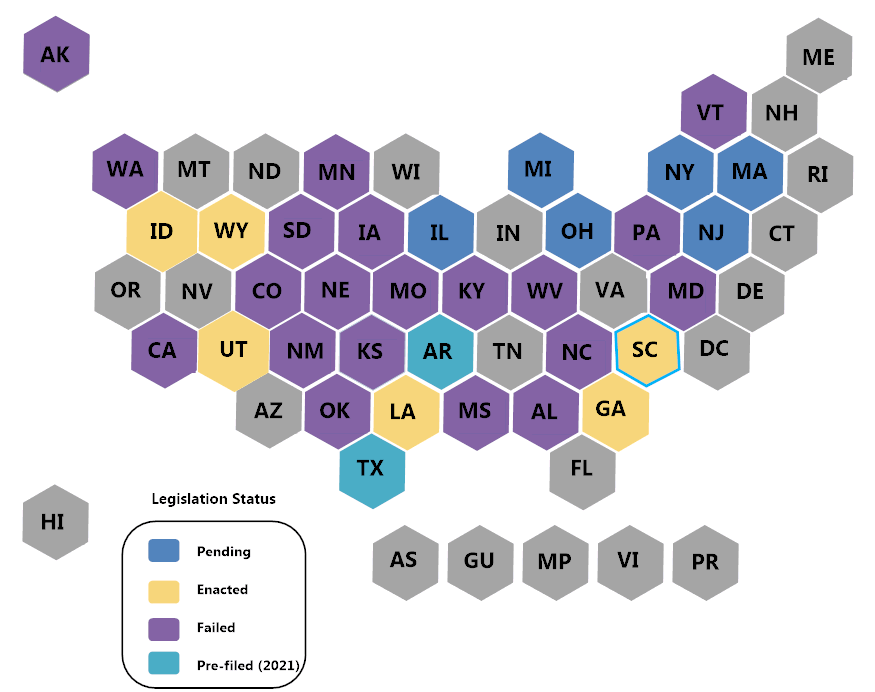Time Switch No Longer
The end of switching your clocks
Pending Patience- Many other states are pushing DST bills into their state governments. They are all waiting for Congress to approve a federal law.
March 2, 2021
Although many people deem daylight saving time unnecessary, the history is extensive, as well as the legislation behind it.
The father of the ideologies for daylight saving time (DST) is Benjamin Franklin, though he did not live to see it in action. His original belief was that setting clocks earlier would conserve energy because the sun would set “later.”
The first country to put DST in place was German during WWI to conserve fuel. The United States attempted to follow Germany’s lead in 1918 after the war but they got backlash from farmers due to the fact they needed the morning sun. Although they promptly canceled DST in 1918, the United States brought it back during WWII. Franklin Roosevelt put it into place on Feb. 9, 1942.
While at first DST was determined by each state, in 1966, a law was established that all states who use DST had to follow specific rules, such as the start and end date. Except for a policy extending the length of DST in 2007, it has stayed relatively the same.
Along with 32 other states last year, Iowa had a bill in the state legislature that would make DST the permanent time throughout the year. It failed to pass multiple times along with the other states. The main deterrent for this is because a federal law would have to be put into place by Congress for states to enact the bill.
The main concern from Iowa citizens is that towns around the bordering states would struggle traveling through different time zones. Many Iowa senators agree that the state legislature would be more willing to pass the bill if Iowa’s bordering states would take the DST bill under consideration.
Making DST permanent has its ups and downs. Although DST conserves energy and erases the hassle of a time switch, many people have complaints. There are many questions about the actual amount of energy DST conserves. Many people seem to think the driving factor for DST is to conserve energy, specifically electricity from light bulbs and heating and cooling. Electricity has become increasingly popular since the beginning of DST, which makes the brighter nights helpful to conserve energy. While it does help the overall impact of saving that energy, it has not been proved to have any positive outcomes. Actually, the longer days might increase electrical consumption by heating and cooling houses and buildings. Overall, most people believe the continuation of DST has more to do with the extended summer days, not the possible positive effects it could have.
This information is from the following sources:
https://www.livescience.com/56048-daylight-saving-time-guide.html


